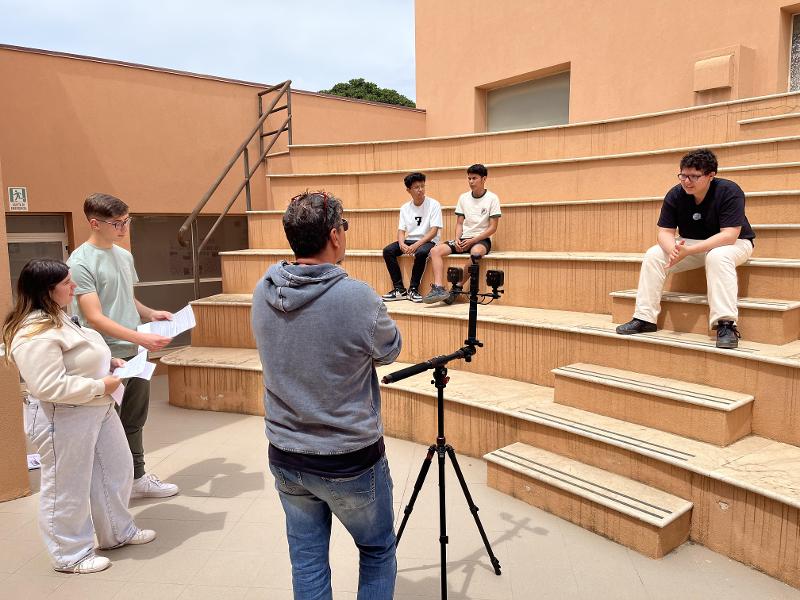“Ways of Europe” school workshops at Lampedusa: Future Dialogues in action!
From May 12 to 15, the students of Liceo Scientifico Ettore Majorana in Lampedusa took part in a transformative educational experience under the umbrella of the Ways of Europe project.

Last month, the Ways of Europe project landed in Lampedusa, bringing a wave of reflection and innovation to the classrooms of Liceo Scientifico Ettore Majorana. Funded by the CERV programme of the European Commission, the project introduced a new and engaging educational methodology on the island: Dialogues on the Future. For four consecutive mornings, students from classes 1A and 2A were actively involved in activities led by a tutor (a journalist and educator representing the Italian partner Mandragola Editrice) who guided them through a process that was both thought-provoking and highly participatory.
Dialogues on the Future are not traditional lectures or standard classroom discussions. This is a participatory tool originally developed in Finland in the 1980s, now adapted to the European context to tackle pressing issues such as migration, climate justice, water emergencies, social inclusion, and freedom of movement. The method serves a dual purpose: on the one hand, it promotes critical thinking and civic participation among young people; on the other, it creates a space for active listening and collective imagination.
The journey began on Monday, May 12, with class 2A. Students identified key issues that affect their everyday lives on the island, a symbolic and real gateway between Africa and Europe. Lampedusa is an emblematic setting for reflecting on migration, environmental crises, and social transformation. Through small-group work, students developed “maieutic” questions designed to stimulate forward-looking thinking: «What will Lampedusa be like in five years? Or ten? What will have changed? Who will have contributed to that change?»
The following day, the activity continued with class 1A. The students took part in simulated “interviews from the future,” role-playing both visionary citizens and curious journalists. These conversations were filmed by a videomaker and will contribute to a collective video and a written manifesto summarizing the key ideas that emerged during the sessions. The students then returned to refine their scenarios, going deeper into the imagined transformations: What decisions led to improvement? What habits had to be abandoned? What alliances and strategies made this more just and inclusive future possible? The method proved powerful in highlighting a fundamental truth: the future is not something that happens to us, it is something we build, together.
These classroom dialogues led to the creation of a series of collective recommendations, addressed not only to EU institutions but also to local actors: the mayor, teachers, and the wider community. The students’ proposals ranged from environmental protection to cultural inclusion, from enhancing youth participation to defending the rights of the most vulnerable.
The Ways of Europe project (coordinated by Arci Solidarietà and implemented with the collaboration of partners from various European countries) found fertile ground in Lampedusa. This island, a crossroads of borders and hopes, became for a few days a civic laboratory where Europe is not a distant or abstract entity, but a shared horizon to be imagined and shaped together. The project will return to the island in early June for a major transnational event, bringing together all the European partners of Ways of Europe, along with journalists, activists, citizens, and local stakeholders.
The direct involvement of students clearly showed that even the youngest can be conscious agents of change. At a time when we often speak of a crisis in democracy and political disengagement, these Dialogues on the Future remind us that participation starts here: with conversation, with listening, and with one simple, brave question: How can we build a better future, together?


